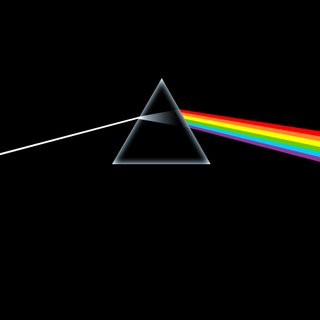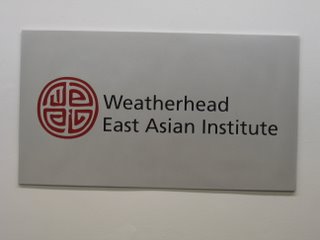I just came back last night from one of the most interesting and creative events I’ve ever seen a church put on. It was stimulating, fascinating, and honestly just a lot of fun.
Tim Keller is the senior pastor at Redeemer Presbyterian, the church I attend here in New York. (I’m not sure if ‘senior pastor’ is his title or not, but he’s the lead pastor, and the one who does most of the preaching Sunday to Sunday. He’s also the founder of the church.) The church put on an evening for members to sign up for that, as the title suggests, they could join Tim for tea and discuss Tolkien’s works. We found out that Tim is a HUGE fan to Tolkien’s; he preempted the obvious ‘how many times have you read them’ question by saying that honestly since he first picked them up in college he has never stopped reading them. He reads them cyclically, along with all of the other work available on Middle Earth, such as the Silmarillion and the multi-volume encyclopedia of footnotes and unfinished material that Tolkien’s son published.
Hearing an analysis of the work from a seasoned and brilliant reader who is a pastor no less, was just outstanding, and I gained a couple of interesting insights during the evening (in addition to thoroughly enjoying myself)
-) Tim said that the primary influence in terms of Tolkien and CS Lewis, who were friends & contemporaries, and a part of a literary circle at Oxford known as the Inklings, went from Tolkien to Lewis. That is, Tolkien and his material had a far greater influence on Lewis than the other way around. It is worth noting however that while Lewis loved LOTR, praised Tolkien lavishly for it and during his readings, encouraging him to continue writing it, Tolkien basically hated the Narnia books (from a literary standpoint). Tolkien strongly disliked allegory, so the Aslan-as-Jesus character was a bit too much for him; it offended his sensibilities because it was so obvious. (Lewis rebutted this by saying they were children’s stories and the overt symbolism would go over their heads, which is pretty thin argument. My mother read all of the Chronicles to me when I was young, and it was VERY obvious to me who Aslan was.) He also felt that Lewis’ Narnia wasn’t consistently put together, that he borrowed to liberally from too many different mythological traditions. If you look at LOTR, most of the myths he draws from are very old Northern European traditions, things like Beowulf. But with Narnia, which has elves and dragons and fauns and centaurs and almost everything else, Lewis felt it turned into somewhat of a menagerie and became rather silly.
-) I had the chance to ask Tim a question, and I asked him who the character or characters were he most closely identified with. He said he couldn’t really answer that directly, but he did give some interesting commentary on some of the characters and on the races, particularly the dwarves, who he said he often feels like on his poorer days as the dwarves often fall victim to being too much in love with the work of their own hands. But he did say that, commenting on the movies, he’d liked them very much, and although there were some characters not as well done as the book, a few he felt the movie helped him understand even more or better. One of these was Sean Bean playing Boromir, and as soon as he said it I knew what he meant. Bean nailed Boromir’s very nuanced character so precisely that I have a hard time now not picturing his face when I think of the character.
-) But the most interesting insight Tim gave was this: he explained, in a way that no one else ever has been able to, what the ring of power actually is, what it represents. He spent a lot of time discussing & analyzing the themes & symbols in the story, so it was inevitable we should come to the ring. “The ring,” he said “In reality, is an idol magnifier. It draws out and amplifies the idolatrous desires in each character’s heart. That’s why Sam sees himself as the ultimate gardener, and Gollum dreams of eating fresh fish every day, and Galadriel would become dark and terrible in her beauty.” But ultimately the ring corrupts both the desire itself as well as the person wielding it. It is the tool that allows for the actualization of that very dangerous wish, to have what it is one most wants above and beyond all laws or limits. Above what is legal, beyond was it moral, outside the scope of what is good and right and holy. I’ve never heard such a good answer to the question of what the ring actually symbolizes.
-) One other thing that’s very interesting, and this speaks to both the power of the work and to the subtle Christian themes that are woven into the fabric of the tale through and through. Tim said he started reading them for the first time in college, when he was still a young Christian. At that time, he said, he was still very immature, still wrestling with a lot of sin and foolishness, but he said that whenever he would read Tolkien, he came away from it with a desire “to be holy”. The books inspired him to try and do better, to be a nobler, better man, that they stirred his heart and gave him the courage to believe, and to try again. I was glad to hear him say this; I know that there are a couple of works that when I read them, I feel much the same way.
One of the things that made this event so extraordinary is that Tim is a well-known pastor of a large urban church. As such, he is responsible for the preaching, and for leading the church, but due to practicality and logistics, he is not able to spend much time with his congregation in a more direct, personal way. I don’t fault him for this at all, I understand there is only so much of any one man to go around. However, I do think there is a danger in pastors becoming so popular that they remove themselves entirely from their congregations; that they never do more informal events where they take time to greet people, shake hands, chat, etc. This event was the perfect counterbalance. I was deeply struck by the level of Tim’s service to his people. I arrived at the church offices a few minutes early, and as I watched, it was Tim himself who made the tea, set out the cookie trays, got everything ready for the people coming, really served them. He didn’t do the event as a ‘preaching lite’, didn’t wait in the background for everyone else to do the work, show up and give his talk, and then disappear afterwards. He was involved in the whole thing with his own hands, start to finish, and he stayed for a while afterwards just to shake hands, meet people, chat with them, really interact. It was one of the most beautiful things I’ve ever seen, and as I said, it was I felt the perfect balance against the normal duties of his job. All in all, a great evening.
 Has everyone out there listened to this album? I mean … seriously!
Has everyone out there listened to this album? I mean … seriously! I’m taking two classes this fall, Econometrics, and Game Theory. Econometrics is basically applied statistics with respect to economic problems; it’s mostly very boring and our professor is not the best lecturer I’ve ever had. Frankly, I’ll be pleased once the course is over.
I’m taking two classes this fall, Econometrics, and Game Theory. Econometrics is basically applied statistics with respect to economic problems; it’s mostly very boring and our professor is not the best lecturer I’ve ever had. Frankly, I’ll be pleased once the course is over. I had the opportunity to go down to Central Park for the first time since being here a few weeks ago for a church picnic. It was a really good time, the park itself is quite beautiful. It’s very interesting because once you’re in the park, everything around you is lush and green, trees and rolling hills. The only thing to remind you that you’re not in fact in the countryside are the skyscrapers that can still be seen above the tops of the trees.
I had the opportunity to go down to Central Park for the first time since being here a few weeks ago for a church picnic. It was a really good time, the park itself is quite beautiful. It’s very interesting because once you’re in the park, everything around you is lush and green, trees and rolling hills. The only thing to remind you that you’re not in fact in the countryside are the skyscrapers that can still be seen above the tops of the trees. Started my internship with the Weatherhead Institute a few weeks ago, and so far it’s been pretty good. The Weatherhead East Asian Institute (WEAI) is the East Asian studies department here at Columbia. Much of the institute’s work is research at the graduate level, but they’re trying to promote awareness and cross-cultural learning on a number of different levels. Part of the reason I was recruited is to help serve as a liaison to my school, General Studies, and to help promote their offerings at the undergraduate level.
Started my internship with the Weatherhead Institute a few weeks ago, and so far it’s been pretty good. The Weatherhead East Asian Institute (WEAI) is the East Asian studies department here at Columbia. Much of the institute’s work is research at the graduate level, but they’re trying to promote awareness and cross-cultural learning on a number of different levels. Part of the reason I was recruited is to help serve as a liaison to my school, General Studies, and to help promote their offerings at the undergraduate level.